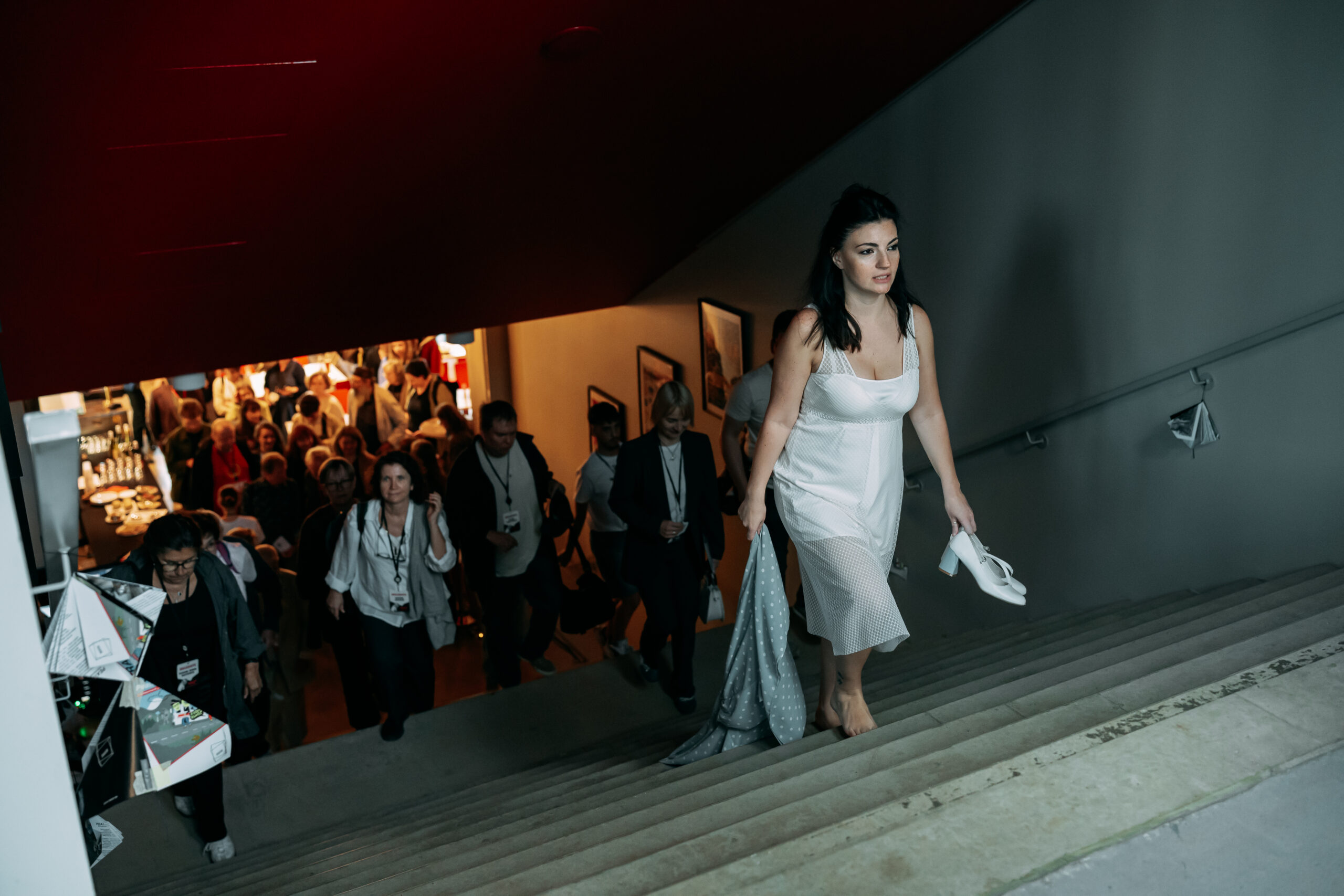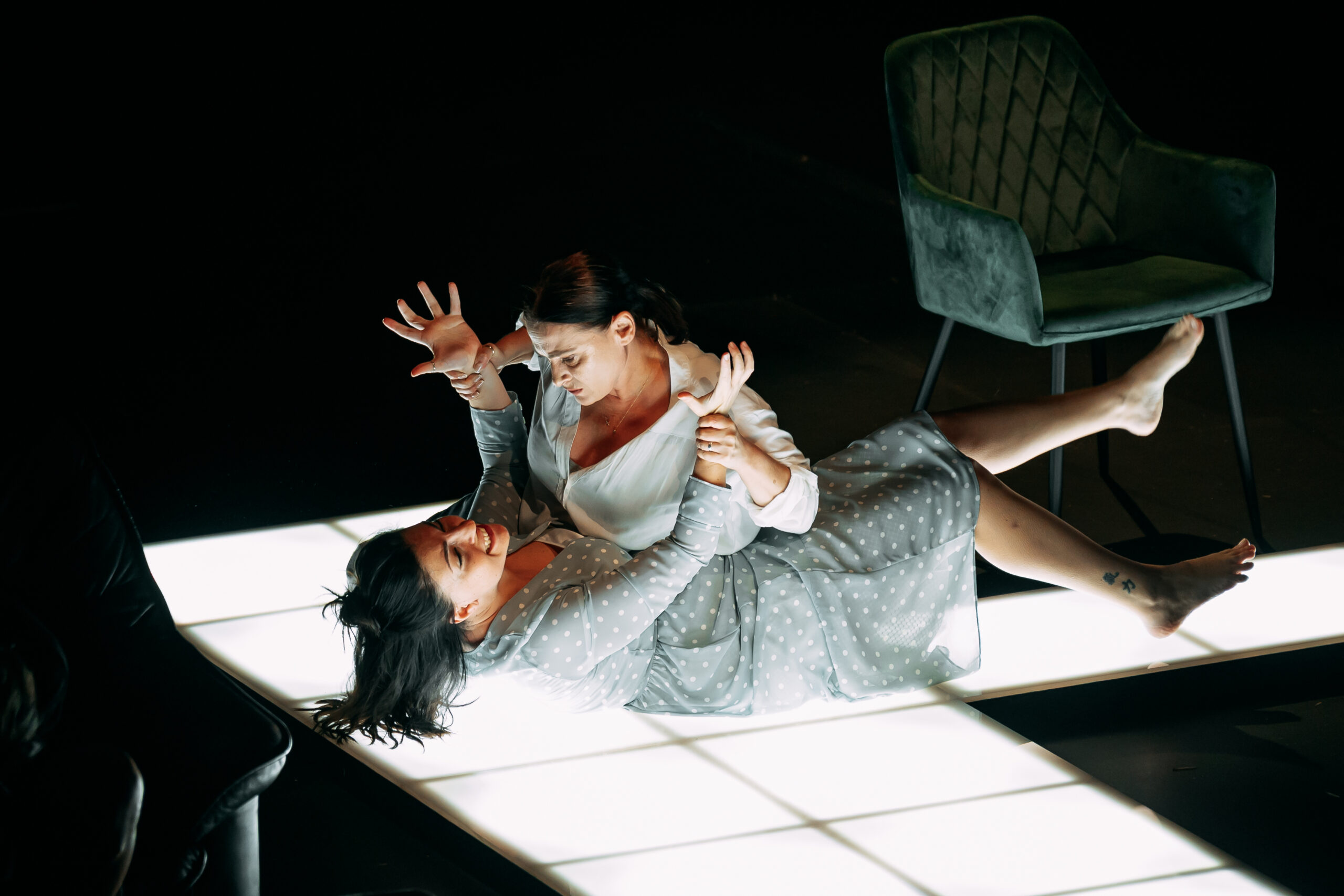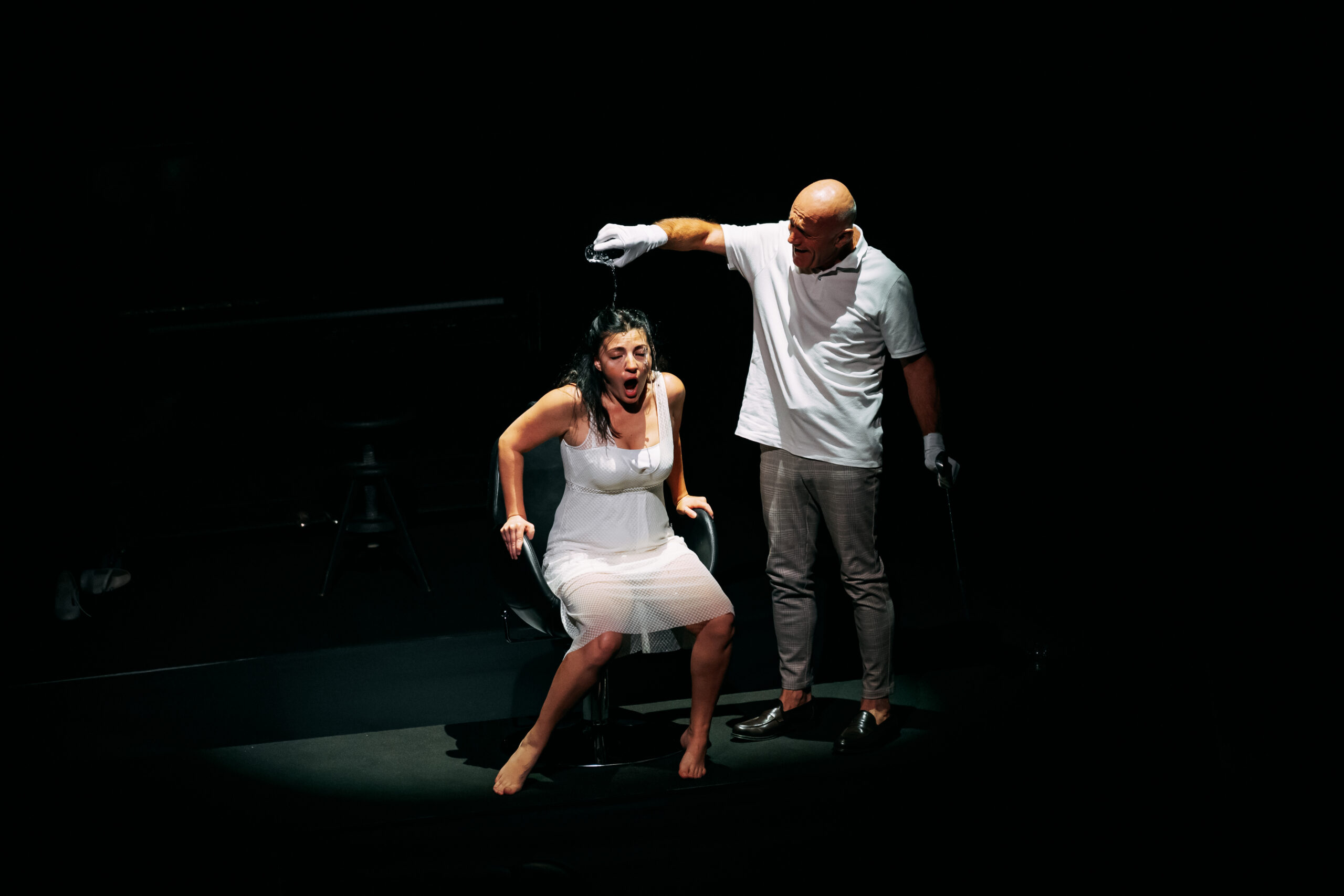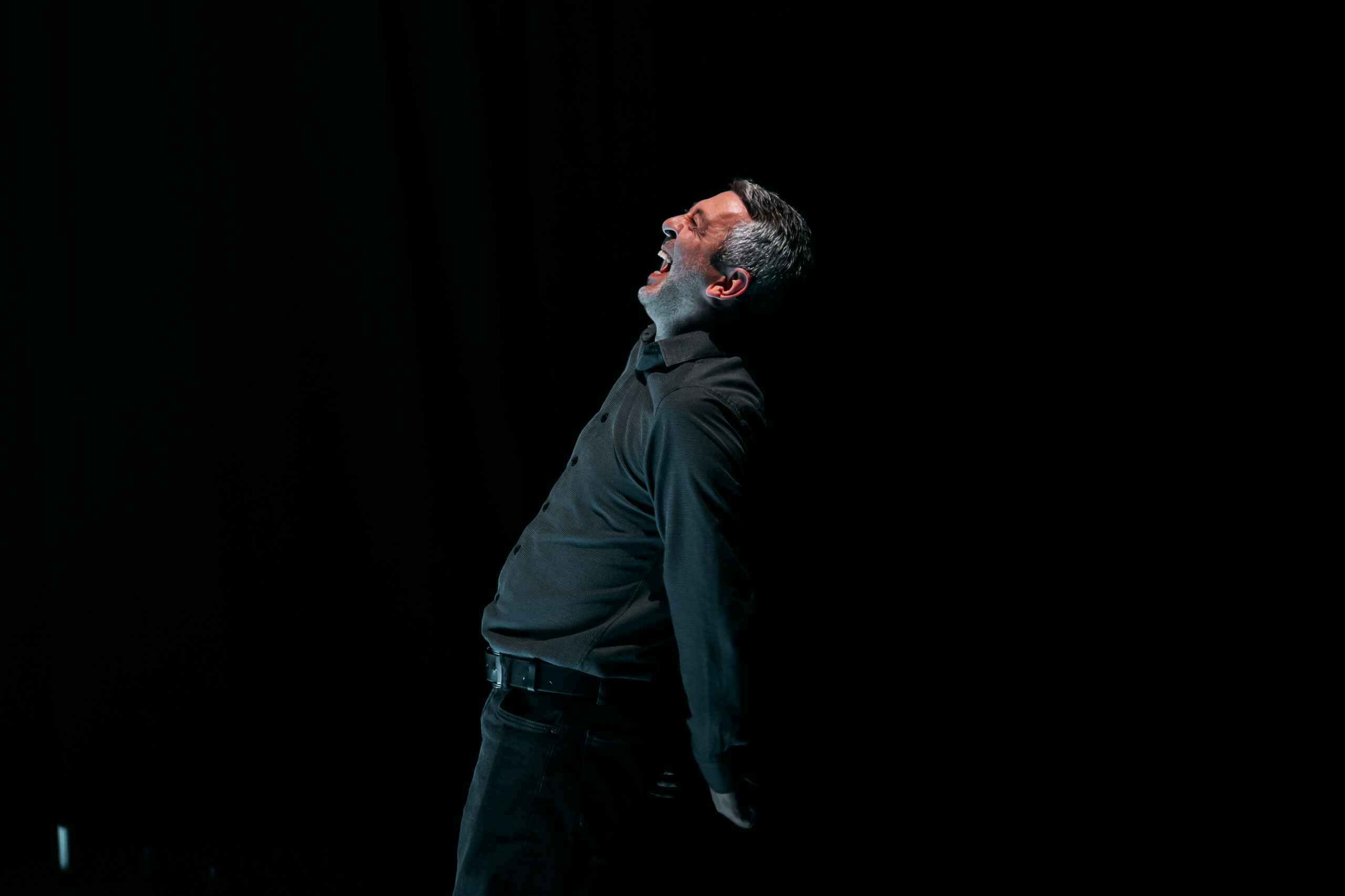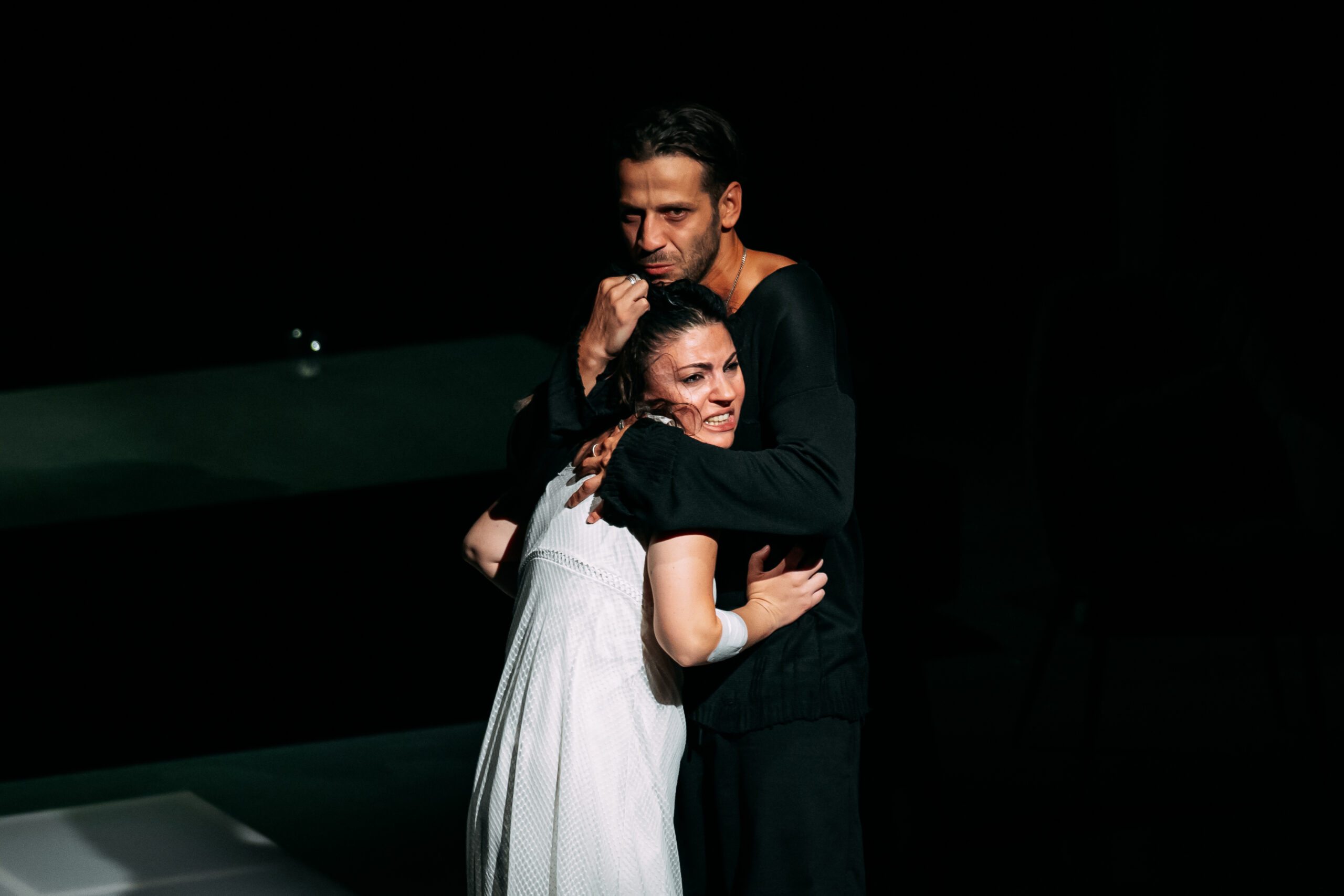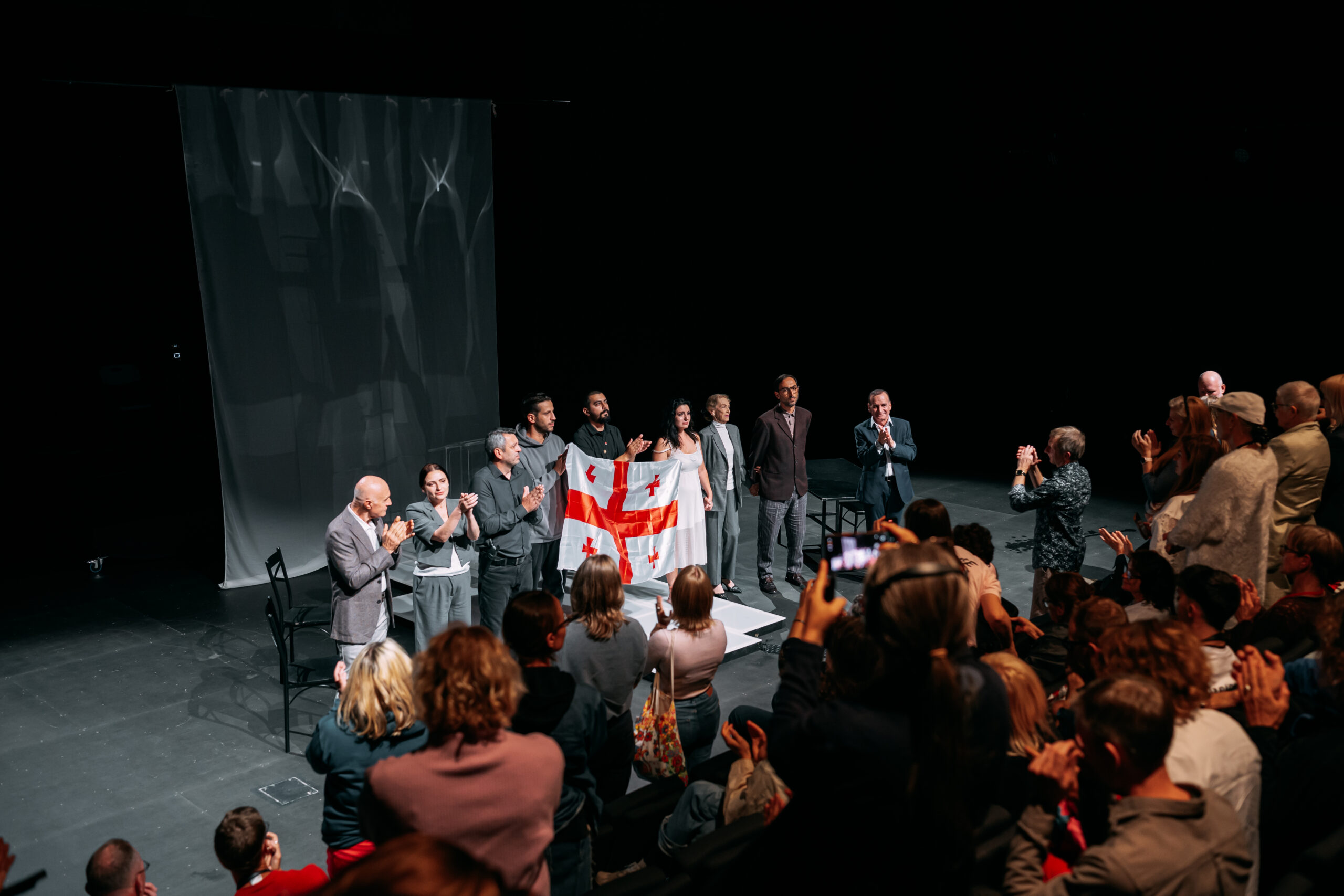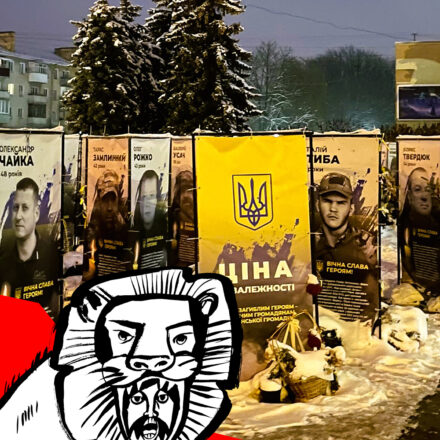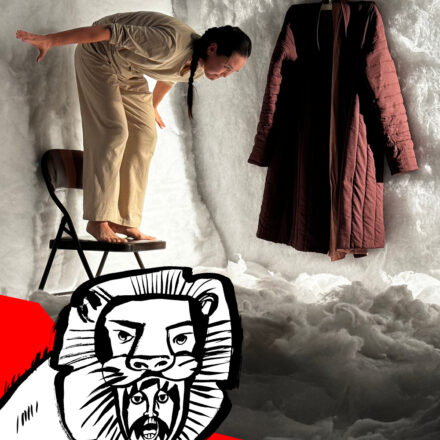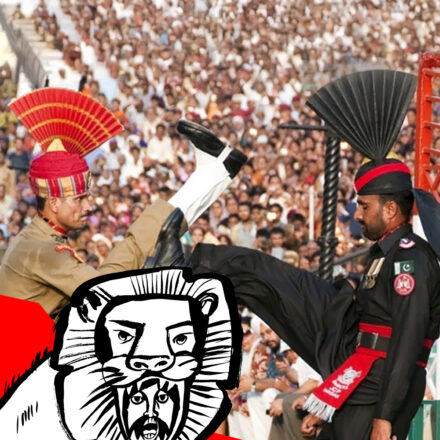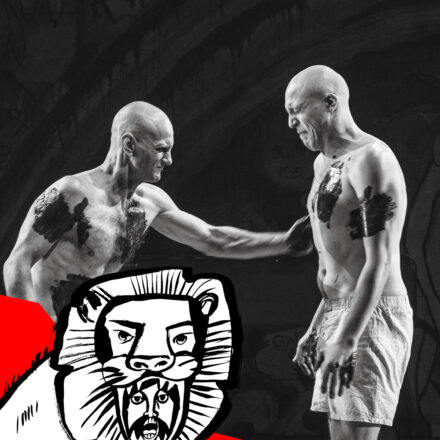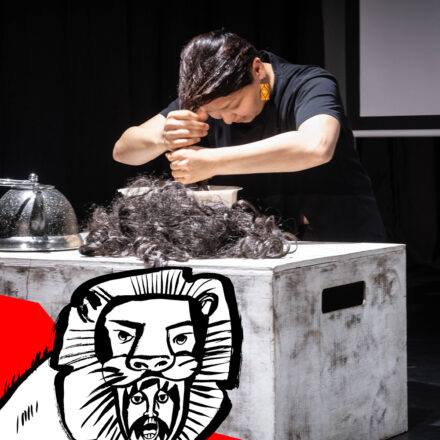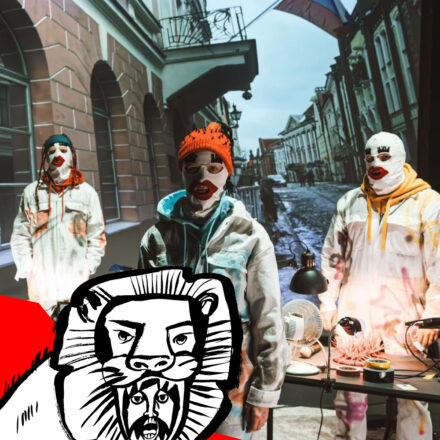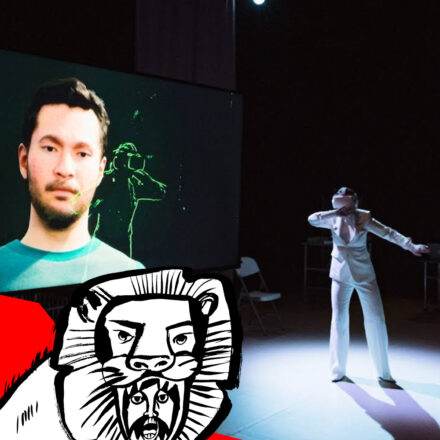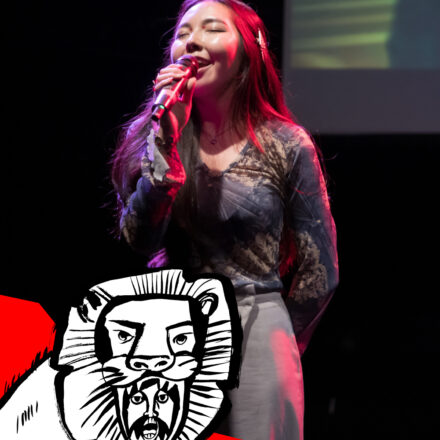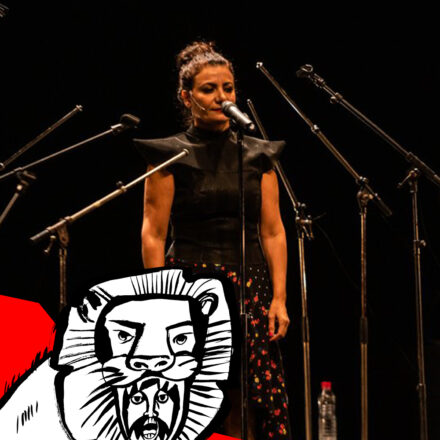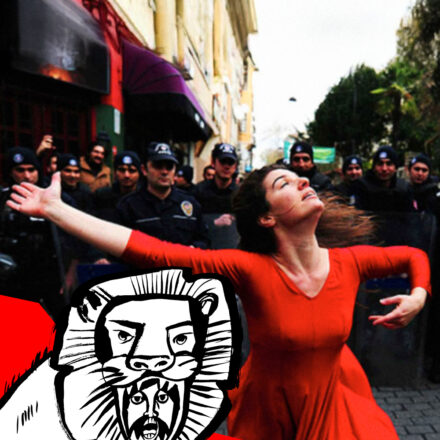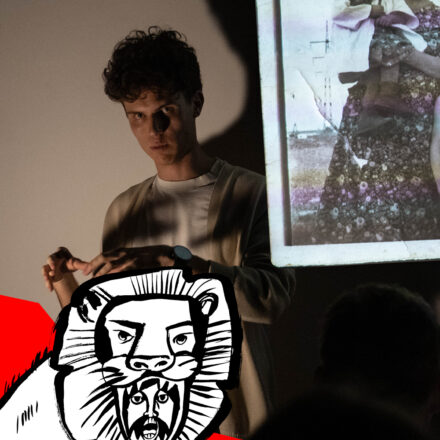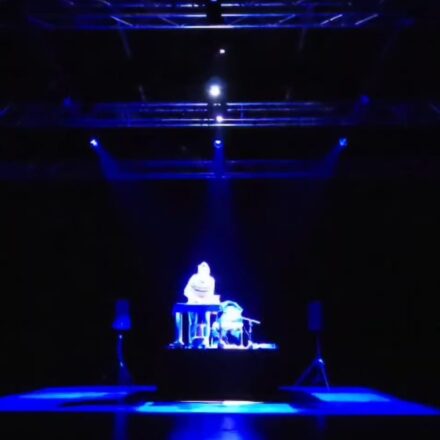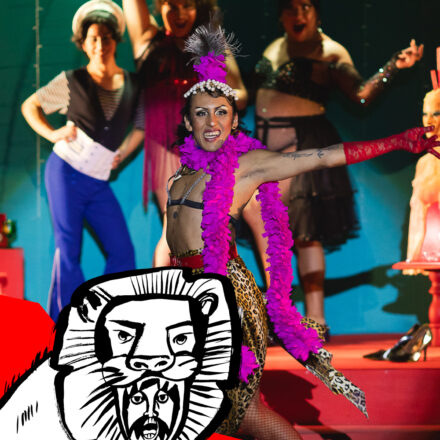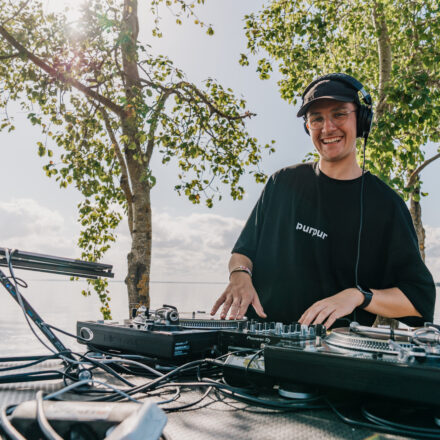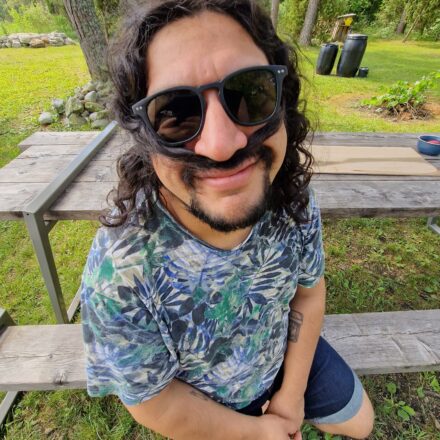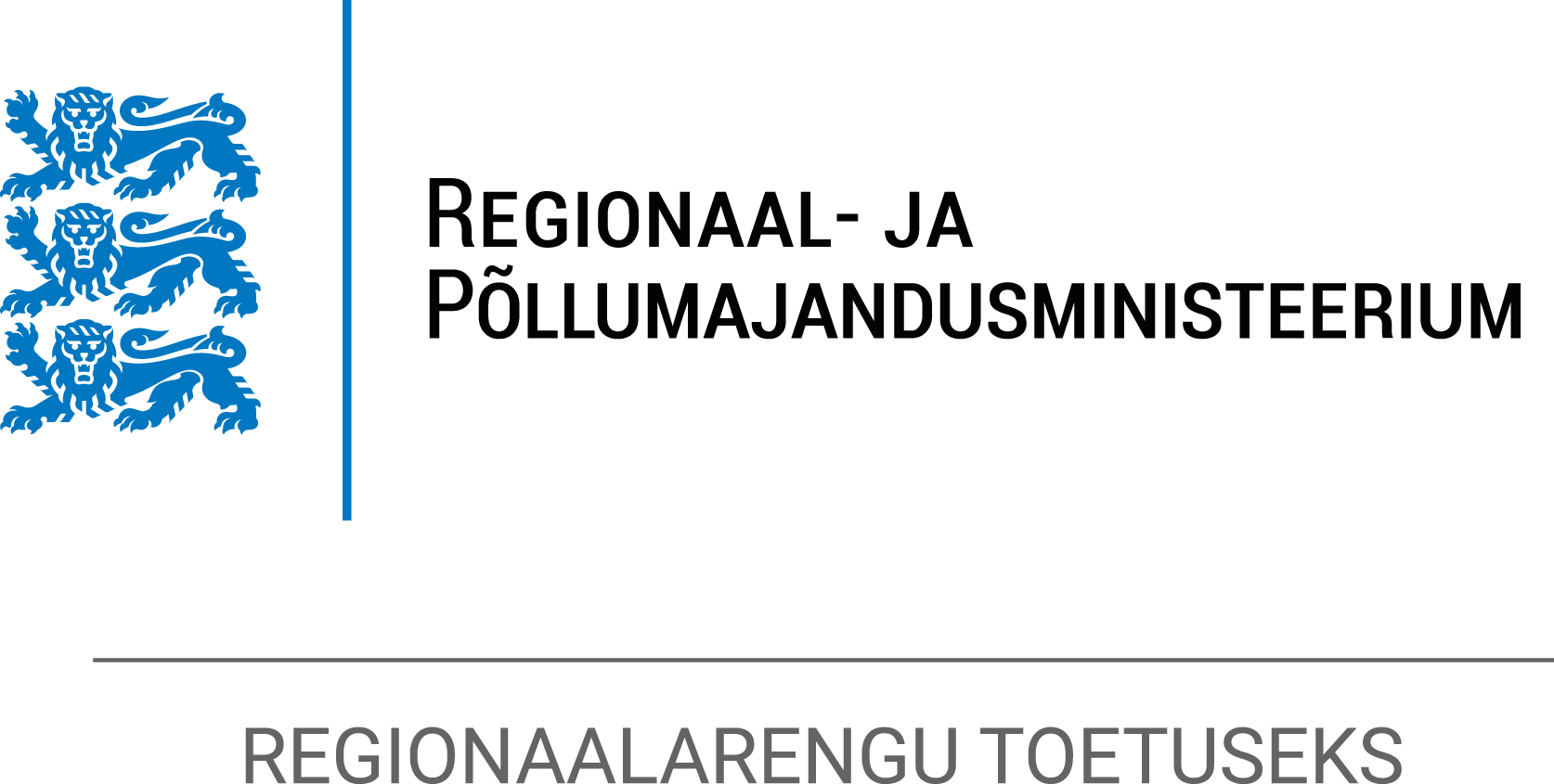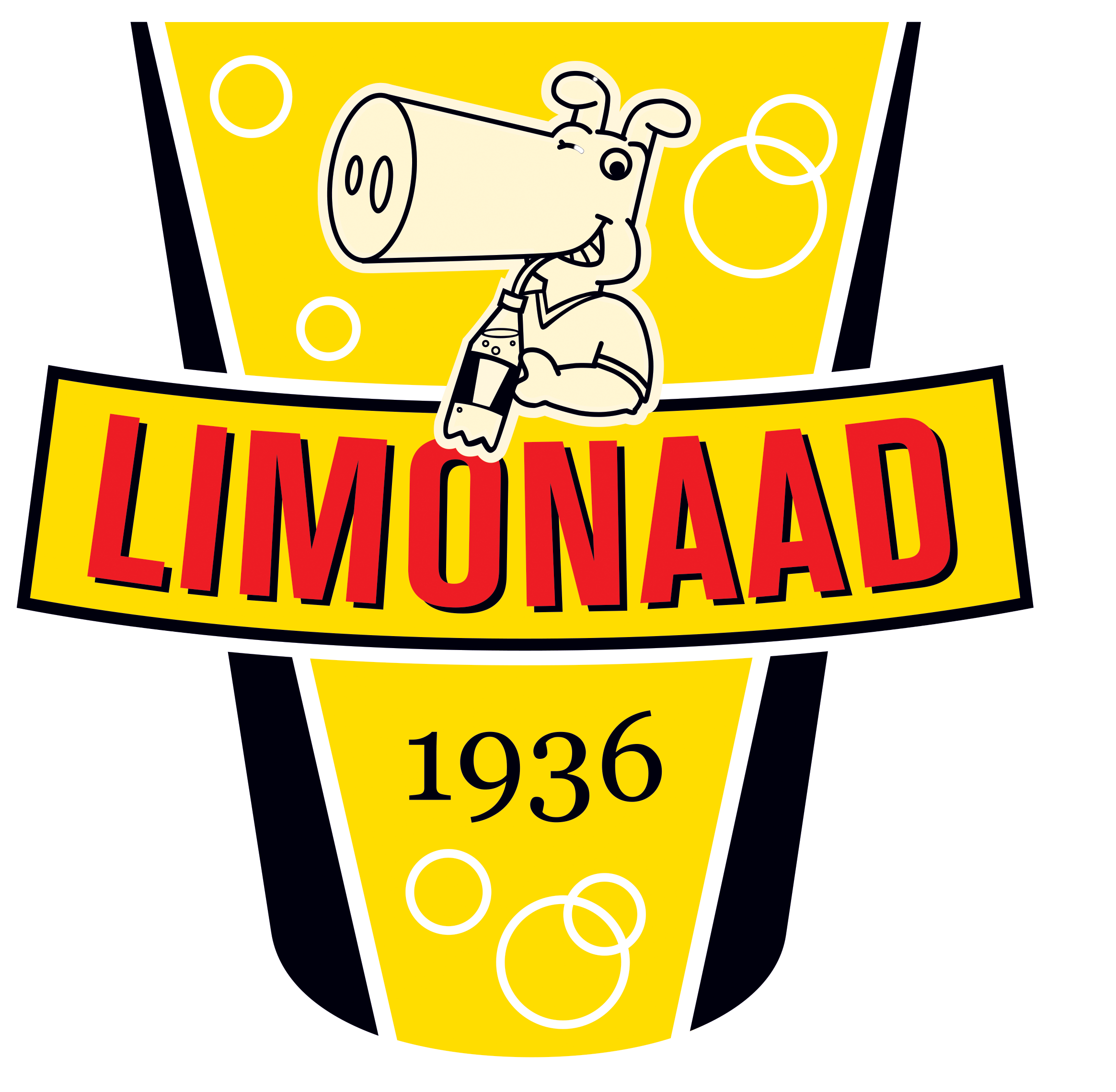Ana's moment (Georgia)
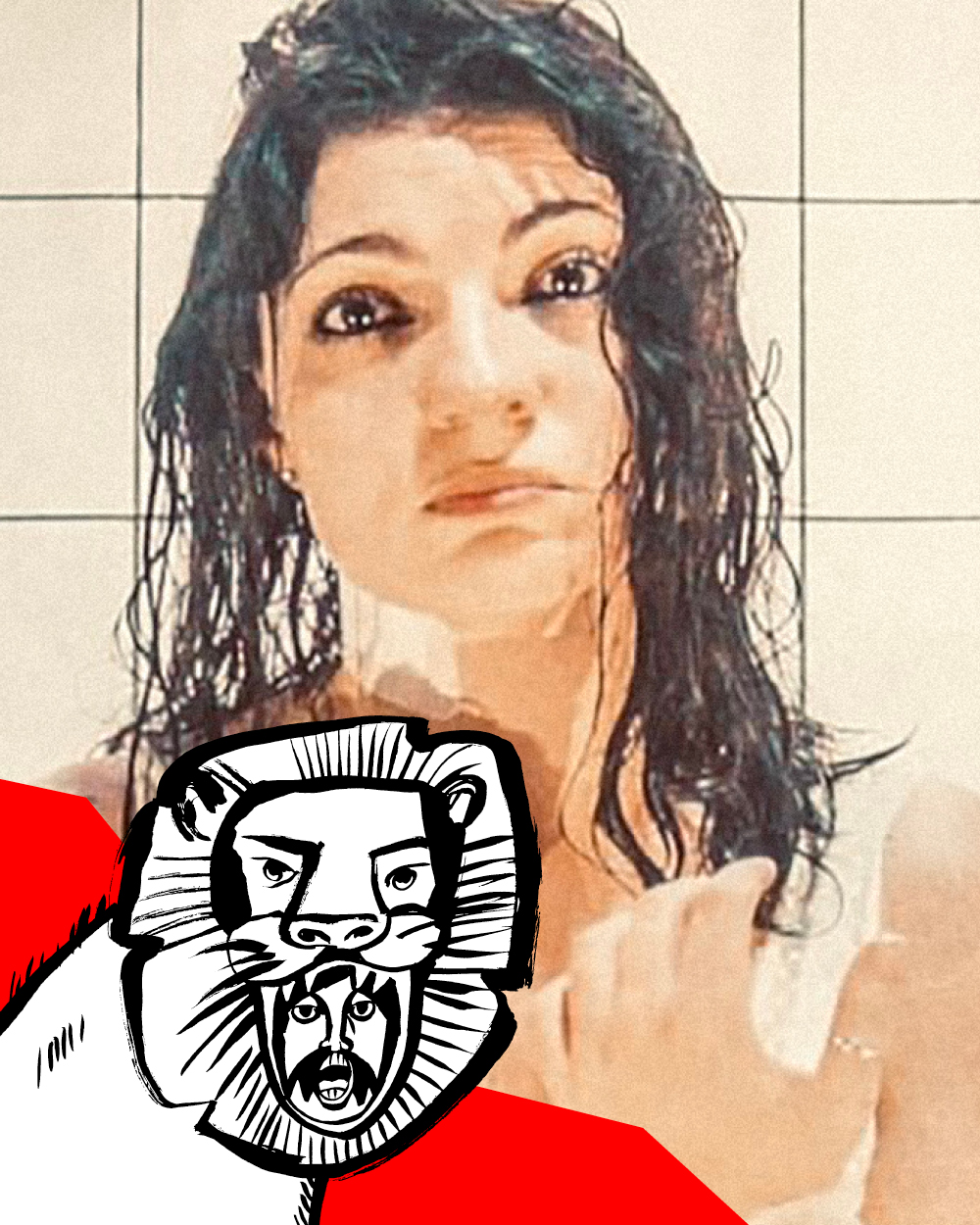
Team
Author Marie BekauriDirector Saba Aslamazishvili
Scenographer Giorgi Ustiashvili
Composer Konstantine Ejibashvili
On stage: Nino Goshadze, Irakli Kverghelidze, Giorgi Surmava,Tamar Abshilava, Ramin Kilasonia, Naira Chichinadze, Guja Karaia, Gena Shonia
Duration: 1 h 40 min
Language: Georgian
Subtitles: Estonian, English, Russian
The performance will have simultaneous interpretation into English and Estonian and Russian surtitles.
A young and successful writer, Ana Nakashidze, suddenly loses her memory. Medical examinations find no physical injuries that could explain her amnesia. Ana’s husband and psychotherapist suspect that she is not actually ill. This mysterious story crosses national borders and sparks serious conflicts that will not subside until the truth comes to light.
“Ana’s Moment” gives a voice to the Third World, which today’s developed countries either fail to hear or choose to ignore. The play tells the story of the brutal war crimes committed by Russians against Georgia. It is a story of a small country that seems to have been abandoned by God. Power is left in the hands of the people themselves.
Learn More: Behind the Story of “Ana’s Moment” – Director Saba Aslamazishvili Opens Up
1. Why did you choose this topic? How has it influenced your work and life?
I decided to stage this novel primarily because it is based on a real story and reflects the real facts and crimes committed by Russian soldiers against the Georgian population during the Abkhazian war of 1992–1993. Talking about this topic was very important for me as a citizen and a creator. Once again, awakening this pain and once again talking about what the truth is and who the real enemy is—and most importantly, that this enemy is still unpunished. In my life as a person, one of the most transformative moments was Ana’s moment, because I was looking for ways in which a person could confront a very great injustice. In the end, I found the strength and made a conclusion: humanity will defeat any injustice through the power of freedom and goodness. And this has given me and society a completely different perspective on my personality.
2. Have there been any interesting situations? Please describe.
It was an interesting situation every day in rehearsal because we were dealing with something that was very painful for us, very familiar to us, and we had to find a way to manage our emotions in order to say something completely accurate to our audience. And finally, we realized that emotions have no limits—and they can’t if they are genuine—so we had to speak our truth openly, openly, and uncompromisingly through our creativity.
3. Is there something else that the audience should or would know?
In this play, we sought the maximum of human strength, so that an ordinary person—a writer named Ana—would find the strength within herself and the ability to restore justice. For this, she gave up everything and truly achieved her goal. The entire creative team has gone through the process of discovering God within ourselves, and this is perhaps the most significant sign and crowning achievement of this process that I want everyone to know.
4. What is freedom for you or what is the meaning of freedom for you?
For me, freedom means being able to state your opinion and express your clear position on any issue in any given situation. Also, for me, the main indicator of freedom is understanding one’s responsibility towards other people and taking their opinions into account.
5. Finally, tell us about the city where the performance was born.
Poti is a small, very beautiful, and very historical coastal city in Georgia—an environment for the development of creativity and existential understanding. In this city, you can stage a spectacle anywhere: by the lake, in the forest, or on the sea. I have been living in this city for two years now, and I think it is a crucial part of my life and creativity. Therefore, the history of this city is already the history of my life.
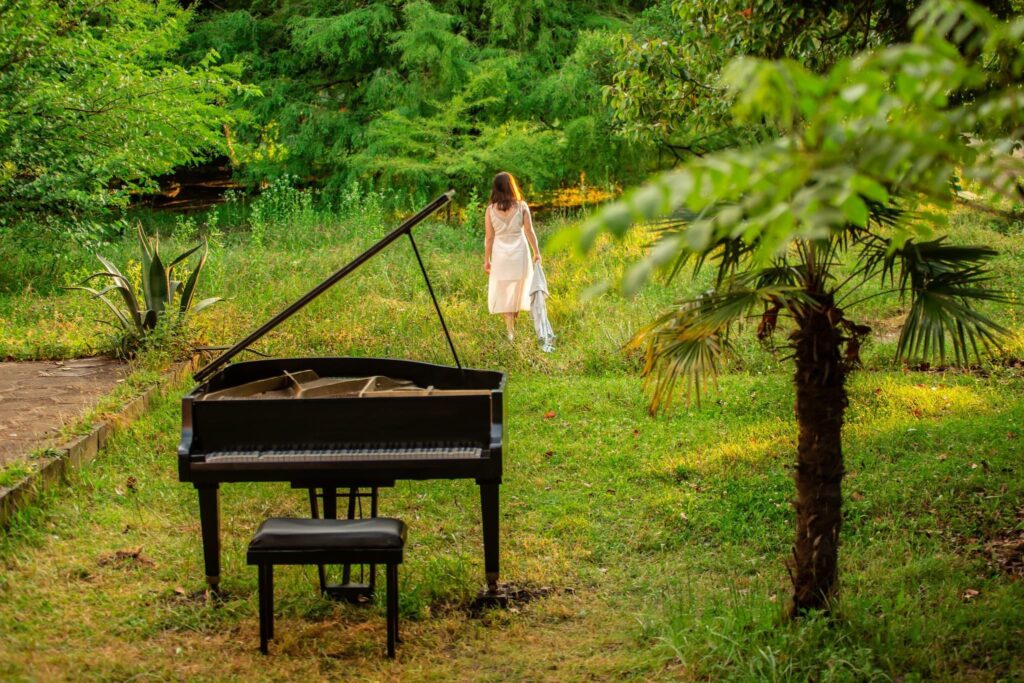

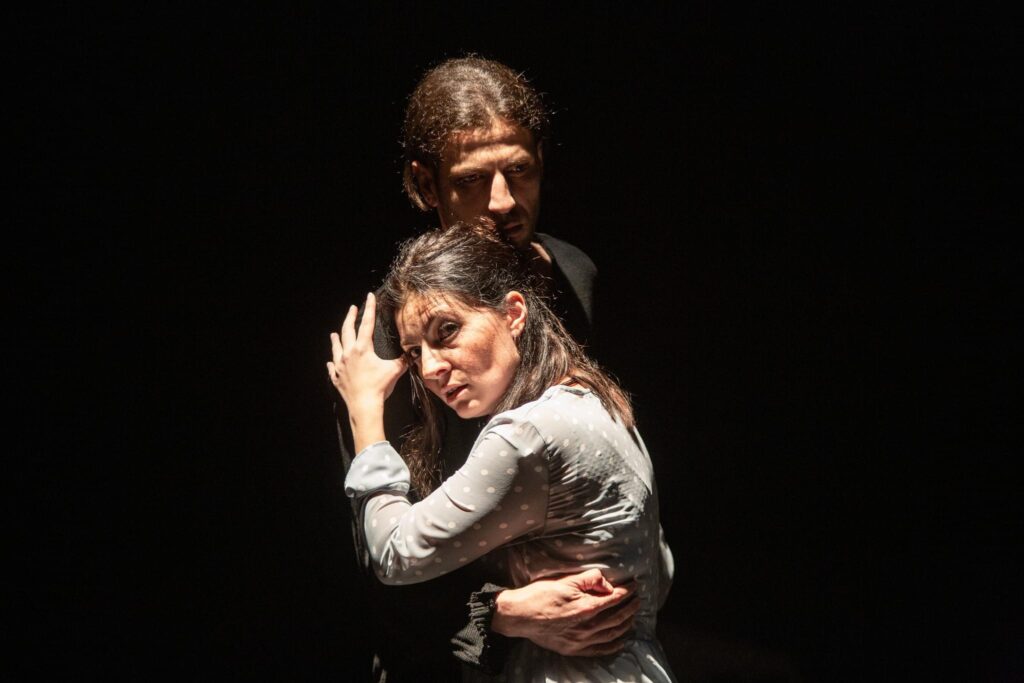
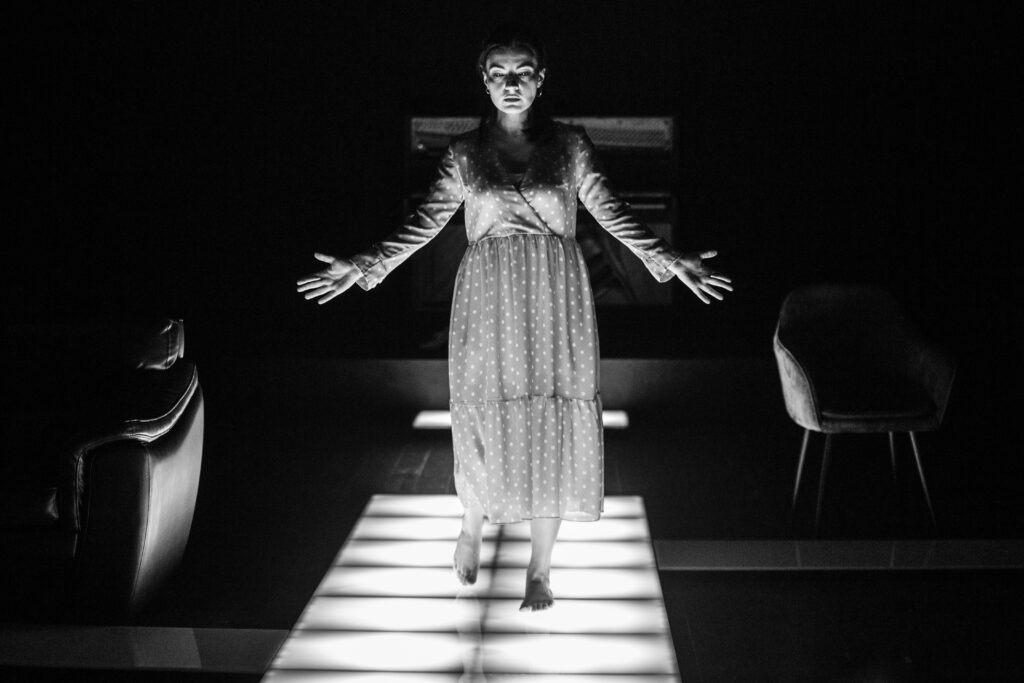

Photos from the festival Jelizaveta Gross

